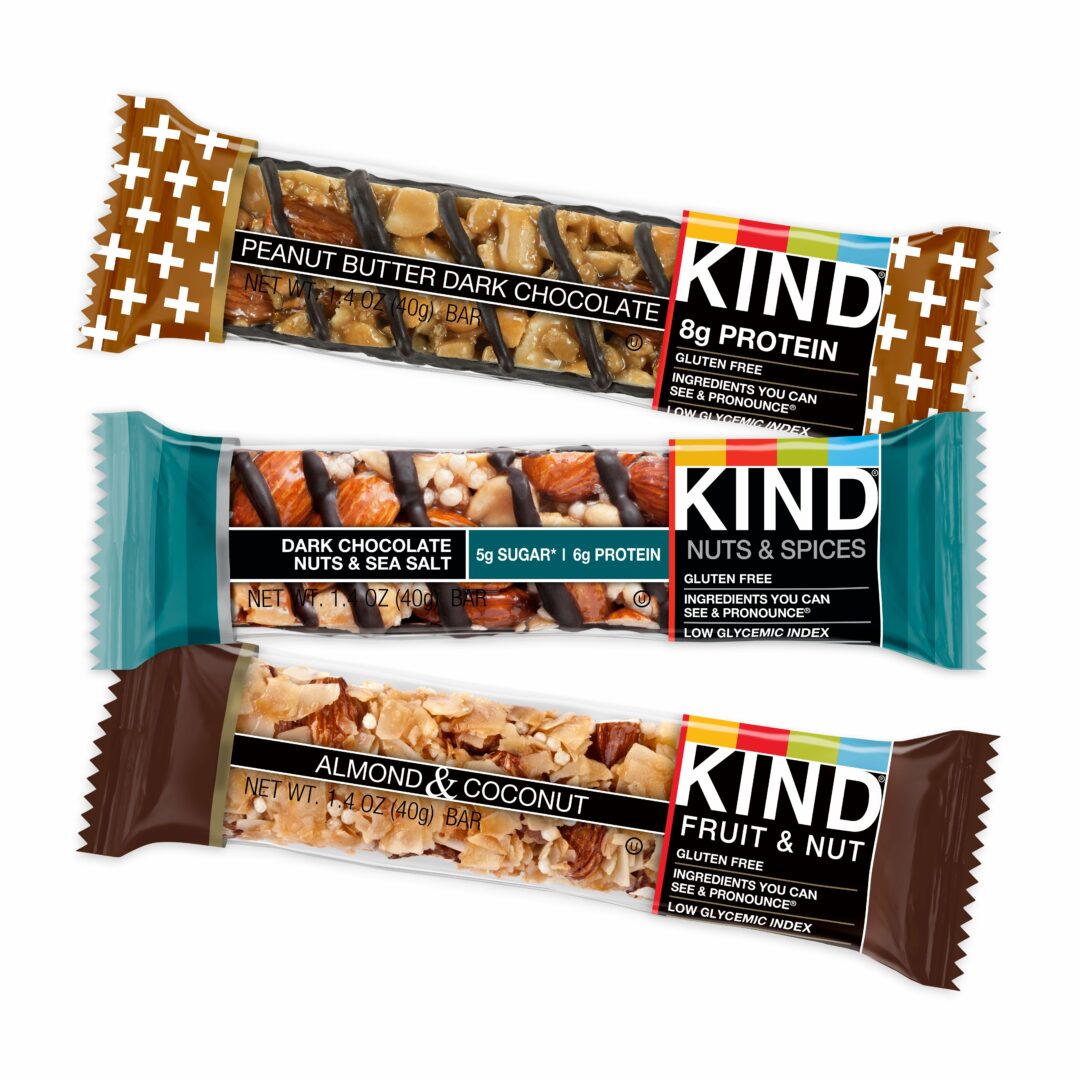US food company Mars is relying on recyclate derived from chemical recycling for the flexible packaging of its “Kind” snack bar brand. The recyclate, which is processed into certified polypropylene (PP), comes from low-grade used mixed plastics from packaging waste. Mars is thus taking a step toward its goal of using an average of 30 percent recycled material in its packaging by 2025. The fact that it is relying on chemical recycling to achieve this is significant. Because from an ecological point of view, there are definitely question marks here. However, the quality of mechanical recycling does not deliver the necessary food quality in the case of mixed waste. It’s a dilemma – but the pressure of one’s own sustainability goals is overpowering.
Project partners: Mars, Landbell, Sabic
- The recyclate used from the pyrolysis process is the result of a joint project between Mars Landbell and Sabic, who joined forces in an “innovative recycling project” at the end of 2020.
- German environmental and waste management specialist Landbell was responsible for collecting the packaging brought in, which was then processed into certified polypropylene (PP) by Saudi Arabian chemical company Sabic.
- The parties involved speak of a pioneering joint initiative by leading companies from various sectors.
Closing loops
The stated aim of the project partners was (and is) to recycle plastic packaging from the yellow garbage can, which is difficult to recycle and can only be incinerated or recycled at low quality in a mechanical recycling process. To turn it back into food packaging they must rely on chemical recycling. This is referred to as a “high-quality cycle”.
The recyclate – and its production
The certified recyclate is of food quality. According to the company, it is obtained by the so-called pyrolysis process from low-grade, used mixed plastics from packaging waste.
- In the pyrolysis process, used mixed plastic can be recycled at the molecular level. To do this, the plastic is heated to very high temperatures of around 500 degrees Celsius in an oxygen-free environment and broken down, producing pyrolysis oil.
- Sabic uses the pyrolysis oil obtained in the same way as a fossil raw material. This makes it possible to create new packaging and products that, according to the company, meet even the most stringent quality requirements, such as those for food packaging.
Chemical recycling the silver bullet?
- According to the German IK Industrievereinigung Kunststoffverpackungen e.V., European plastics producers plan to invest around €7.2 billion in chemical recycling by 2030. This feat is intended to establish as many marketable processes as possible to complement traditional mechanical recycling.
- The big goal, according to the IK, is more efficient recycling of plastic waste and tighter recycling of plastics.
Food contact is a sticking point
The recyclate is also needed above all for use in packaging that comes into contact with food. This is because mechanical recycling processes are not capable of producing recyclate from mixed plastics of used packaging derived from household collection that meets the necessary hygiene and quality requirements.
The eco-dilemma
So-called chemical recycling is anything but uncontroversial. Critics point out, and not without good reason, the very high energy input required for the innovative processes. Particularly in view of the current focus on climate issues and greenhouse gas emissions, this is a weighty disadvantage.
The brand dilemma
Mars, like almost all of the major brand companies, has set itself ambitious environmental and sustainability targets. For example, by 2025, an average of 30 percent of the plastic required for all Mars packaging is to come from recycled material.
The path to this goal is extremely difficult, especially in the area of refined plastic packaging. Without recyclate from chemical recycling, it is almost impossible to achieve. At the moment, companies like Mars see no other way out – even if this means possibly paying into one account what you withdraw from the other.

